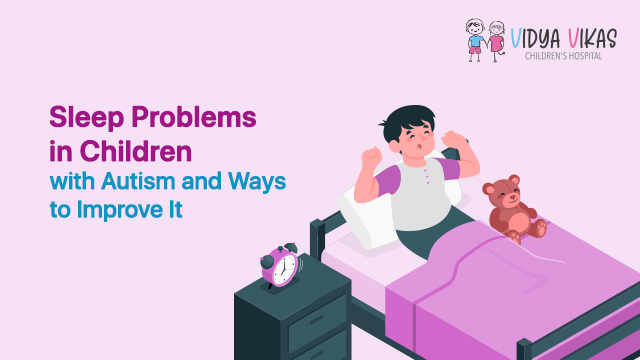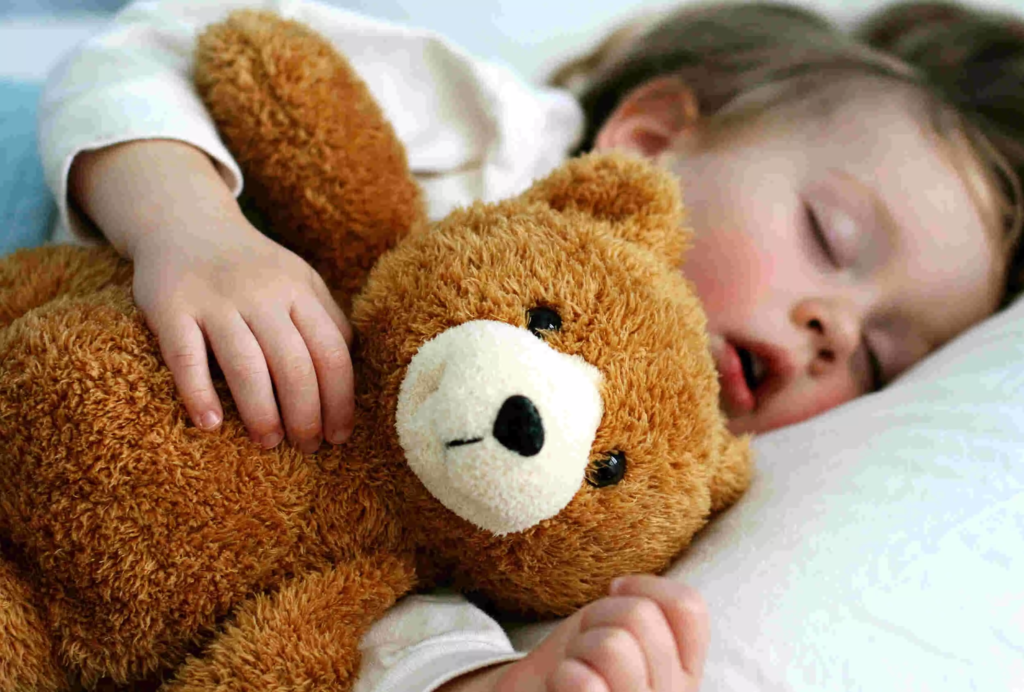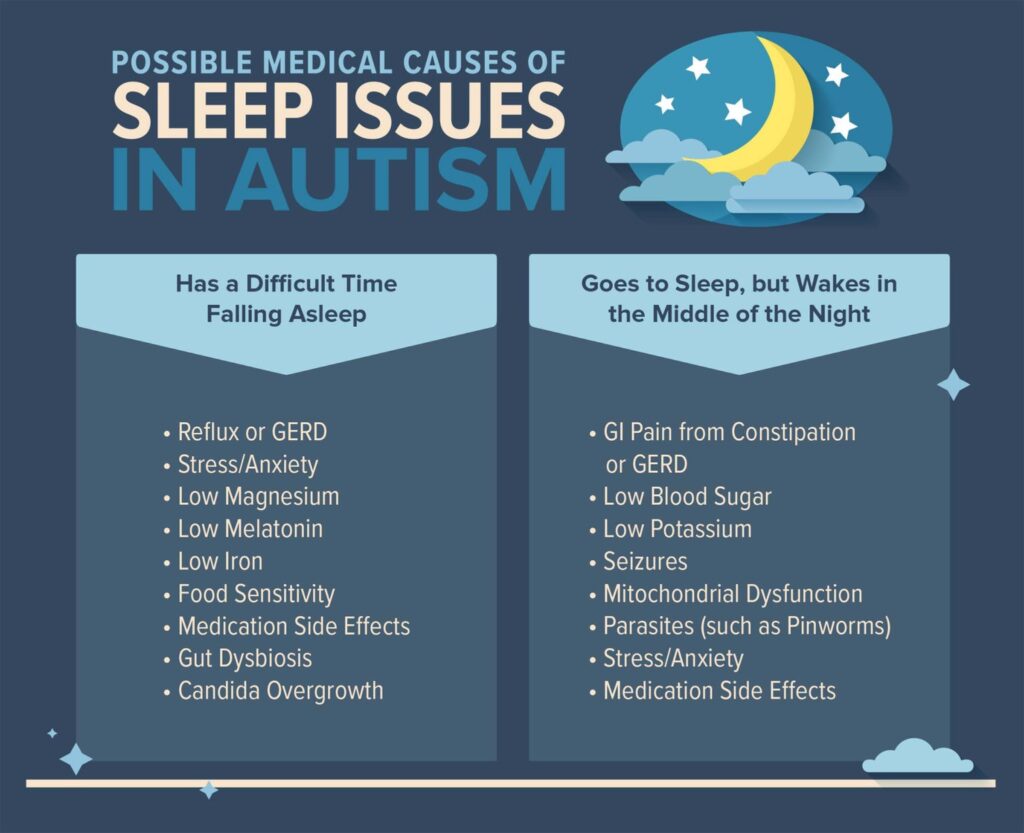


Sleep cycle and sleep quality are crucial health aspects that are often overlooked, especially in children. Sleep problems in children with autism, such as sleeplessness and insomnia, can significantly impact their daily lives and exacerbate the challenges associated with autism. Addressing these sleep disorders is vital, as they may affect a child’s future and potentially worsen autism-related issues.
In Nashik, some excellent pediatric doctors specialize in autism treatment and can help children manage their sleep problems. The first step in improving sleep for children with autism is to identify these sleep issues early. Common pediatric sleep disorders include difficulty falling asleep, frequent night awakenings, and irregular sleep patterns.
Sleep problems are prevalent among children with autism. Studies have shown that up to 80% of children with autism spectrum disorder (ASD) experience some form of sleep disturbance. These issues can manifest in various ways, including difficulty falling asleep, staying asleep, or waking up too early. The reasons for these sleep problems are multifaceted and can include:
Sensory Sensitivities: Children with autism often have heightened sensitivity to environmental stimuli. This can make it challenging for them to fall asleep or stay asleep if they are disturbed by noises, lights, or other sensory inputs.
Anxiety and Stress: Many children with autism experience high levels of anxiety and stress, which can interfere with their ability to relax and fall asleep. Bedtime can become a particularly stressful time if the child associates it with separation from their parents or other anxieties.
Irregular Melatonin Production: Melatonin is a hormone that regulates the sleep-wake cycle. Research has found that children with autism may have irregular melatonin production, which can disrupt their sleep patterns.
Medical Conditions: Some medical conditions commonly associated with autism, such as gastrointestinal issues or epilepsy, can also contribute to sleep disturbances.
Establish a Consistent Bedtime Routine: Create a calming and consistent bedtime routine to signal to the child that it’s time to sleep. Activities such as reading a book, taking a warm bath, or listening to soothing music can help.
Create an Ideal Sleep Environment: To promote better sleep, make sure the child’s bedroom is quiet, dark, and cool. Removing electronic devices and ensuring a comfortable bed can also help.
Use Behavioral Interventions: Implement behavioral strategies like positive reinforcement for good sleep habits and making gradual adjustments to bedtime to manage sleep problems effectively.
Seek Medical Consultation: Consult with a pediatric doctor specializing in autism treatment for personalized strategies and, if necessary, medical interventions to address sleep disorders. In Nashik, skilled pediatricians are available to support children with autism and their families.
Focus on Diet and Exercise: Ensure the child has a healthy diet and regular physical activity, which can also help improve sleep quality. It’s important to limit caffeine and sugar intake, especially in the evening.
Improving sleep in children with autism requires a combination of behavioural interventions, environmental adjustments, and, in some cases, medical treatments. Here are some effective strategies:

A consistent bedtime routine can help signal to the child that it is time to sleep. This routine should be calming and predictable. Activities such as reading a book, taking a warm bath, or listening to soothing music can help the child relax and prepare for sleep.
The child’s sleep environment plays a crucial role in promoting good sleep. The bedroom should be quiet, dark, and cool. Blackout curtains can help block out external light, and white noise machines can mask disturbing sounds. Removing electronic devices from the bedroom is also essential, as the blue light from screens can interfere with the sleep-wake cycle.
Behavioral strategies can be highly effective in managing sleep problems. Some approaches include

In some cases, medical interventions may be necessary. Consulting with a pediatrician who specializes in autism treatment can provide personalized strategies and, if needed, prescribe medications to address sleep disorders. For instance, melatonin supplements are sometimes used to help regulate the sleep-wake cycle.
Sleep problems in children with autism are common but can be managed with the right strategies and support. Addressing pediatric sleep disorders is essential for improving the quality of life for these children and helping them thrive. In Nashik, specialized pediatric doctors are available to provide the necessary care and treatment for children with autism, ensuring they get the rest they need for their overall well-being.
Addressing sleep issues in children, especially those with autism, requires specialized care and understanding. Pediatric sleep disorders can significantly impact a child’s health and development.
Vidya Vikas Pediatric Neuroscience Center in Nashik specializes in pediatric care with a comprehensive focus on conditions like Autism Spectrum Disorder (ASD). Established in 2001, it was the first hospital in North Maharashtra dedicated solely to pediatric patients, aiming to provide premium medical care through state-of-the-art equipment and a compassionate approach.
1: Why is sleep quality crucial for children with autism?
Quality sleep is crucial for children with autism, as poor sleep can significantly impact their overall health and daily functioning. It can exacerbate challenges related to social interactions, communication, and behaviour. Adequate sleep helps regulate mood, enhance learning, and improve behaviour, reducing the severity of autism-related symptoms. Early intervention for sleep disorders can prevent long-term negative effects on a child’s cognitive development, emotional regulation, and overall well-being.
2: How can sleep disorders in children with autism be addressed effectively?
A: Addressing sleep disorders in children with autism involves a comprehensive approach that includes behavioural interventions, environmental adjustments, and sometimes medical treatment. Establishing a consistent bedtime routine and sleep schedule can help in regulating the child’s sleep cycle.
3: Which is the best hospital to consult for autistic children with sleep disorders?
Vidya Vikas Pediatric Neuroscience Center in Nashik specializes in pediatric care, focusing on conditions like Autism Spectrum Disorder (ASD). Established in 2001, it was the first hospital in North Maharashtra dedicated solely to pediatric patients, aiming to provide premium medical care through state-of-the-art equipment and a compassionate approach.
4: What are common sleep problems in children with autism?
Common sleep problems include insomnia, frequent night awakenings, early morning awakenings, and difficulty falling asleep. These issues can affect daily functioning and overall health.
5: Can improving sleep help with autism-related behaviors?
Yes, improving sleep can lead to better mood regulation, enhanced learning, and reduced behavioral issues, thereby improving the overall quality of life for children with autism.